|
|
Energy consumption is a growing issue, not just for individuals but for society as a whole. With increasing energy costs and climate change concerns, finding ways to save energy is more important than ever.
While many people turn to traditional solutions like energy-efficient light bulbs and appliances, there are numerous other alternatives that can be implemented to reduce energy usage and lower utility bills.
From using smart home technology to improve energy management to exploring new and innovative ways to generate energy, there are plenty of options available for those committed to making a positive impact on the environment while also saving money.
In this article, we will explore some of the most effective and accessible ways to save energy in apartments and highlight the benefits of adopting these alternatives.
Key Takeaways
- Energy consumption is a growing issue, and finding ways to save it is more important than ever, now with increasing energy costs and climate change concerns.
- Smart home technology can help manage energy usage by automating and optimizing household devices, such as using smart thermostats, smart plugs, smart lighting, and adjusting furnace and air conditioning systems to optimal settings.
- Energy efficiency is key, and strategies to reduce energy usage from appliances include choosing Energy Star-certified models, replacing old appliances with new high-efficiency models, using appliances efficiently, unplugging devices when not in use, using natural lighting when possible, and using energy-efficient lighting.
- Renewable energy sources, such as solar, wind, and hydropower, can help reduce monthly utility bills by offsetting power from the grid, and apartment dwellers can take advantage of renewable resources by investing in green energy through utility companies, installing solar panels on balconies, windows, and rooftops, purchasing wind turbines specifically designed for apartments, or joining a local community renewable energy program.
- Apartment dwellers can voice their concerns and suggestions to landlords or property managers to help move towards a more sustainable future.
- Saving energy is vital for reducing costs and helping to protect the environment, and it’s up to all of us to take action and make sure that we’re doing what we can to reduce our carbon footprint.
Use Smart Home Technology
Smart home technology is becoming increasingly popular as a way to manage energy usage by automating and optimizing household devices, from lighting and temperature control to entertainment systems and appliances.
Smart home devices can be programmed to turn off when not in use, adjust settings based on occupancy, and even learn usage patterns to anticipate and reduce energy waste.
One example of smart home technology is a smart thermostat. These devices allow users to set schedules for heating and cooling systems, adjust settings remotely through a smartphone app, and even use machine learning to optimize energy usage based on household patterns.
According to the US Department of Energy, installing a smart thermostat can help you save around 10% on average a year on heating and cooling.
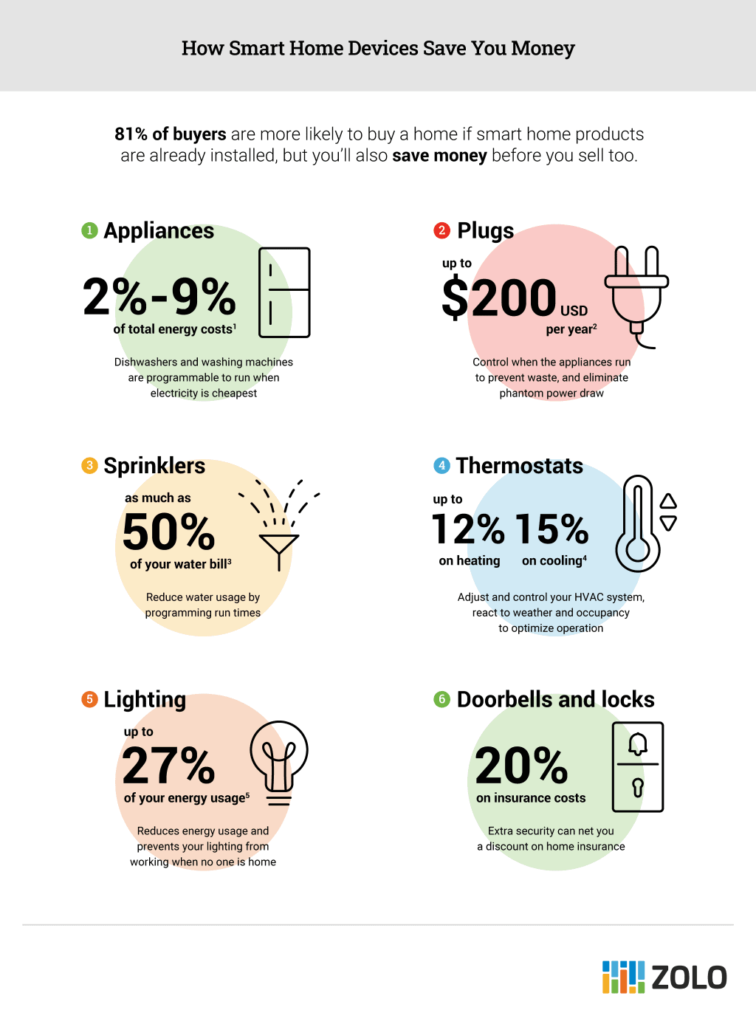
source: https://www.zolo.ca/blog/smart-homes-save-money
Other ways smart technology can help you save energy include:
- Using smart plugs to turn off appliances when not in use. By adjusting settings on electronics automatically, you can save a significant amount of energy and reduce the need to leave devices plugged in all the time.
- Using smart lighting to manage and control your home’s lights. Some systems also feature built-in sensors that can detect when rooms are empty and adjust light settings accordingly, resulting in less energy waste.
- Adjusting furnace and air conditioning systems to optimal settings. By automating thermostats, smart home devices can learn the temperatures you prefer in your apartment, as well as when you are likely to be present or away. This allows them to adjust temperature settings accordingly so they won’t waste energy heating or cooling an empty room.
Energy Efficiency Is Key
Essentially every appliance in your home consumes some amount of energy, even if it’s just a little. While this might not seem like a significant drain on your utility bills, the collective impact can add up over time and significantly increase costs.
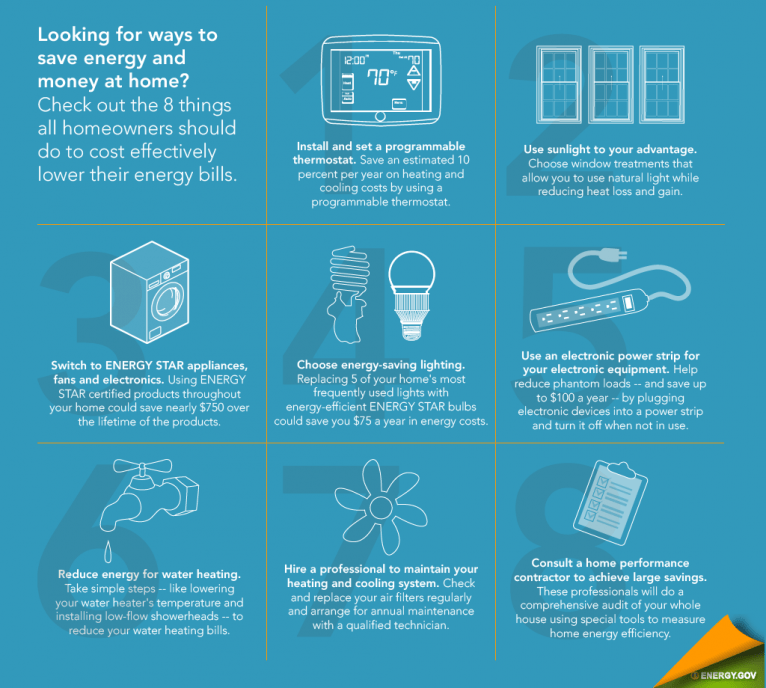
source: https://www.energy.gov/energysaver/articles/10-energy-saving-tips-spring
Fortunately, there are many ways you can reduce energy usage from appliances. Here are some of the most effective strategies:
- Choose Energy Star-certified models when possible. One way to make sure that you’re buying an appliance that is energy efficient is to purchase those with the Energy Star designation.
Products with this certification have been tested and certified by independent laboratories as meeting a certain level of energy efficiency based on criteria set by the US Environmental Protection Agency (EPA).
- Replace old appliances with new high-efficiency models. Old appliances are often significantly less energy-efficient than more recent models. This is a big problem as older models use more electricity, thereby increasing your energy bills.
By upgrading outdated appliances to newer models, you can significantly reduce energy consumption and save a substantial amount on utility costs. As a bonus, the new appliances may also come with additional features that improve convenience and streamline use.
- Use appliances efficiently. It isn’t enough to just have energy-efficient models; you also need to use them properly to reap the maximum benefits.
Some of the most common energy wastes with appliances come from running them too long, setting temperatures improperly, and leaving them on when not in use.
For example, running the dishwasher at full power when you only have a few dishes is far less efficient than filling them up to their maximum capacity. Similarly, using the wrong setting on your washing machine can significantly increase energy costs.
By making small adjustments to how you use appliances, you can drastically reduce their energy consumption and make a real difference in your utility bills.
- Unplug devices when not in use. Even when an appliance isn’t running, it often uses little energy while plugged in. This is known as phantom or standby power and can quickly add up over time.
By unplugging devices such as TVs, game consoles, and other electronics when they’re not being used, you can avoid this extra energy drain and reduce your bills significantly.
- Use natural lighting when possible. Natural lighting is not only beautiful and calming, but it’s also free of charge.
By taking advantage of the sun when possible, you can reduce your reliance on electricity-powered lights during daylight hours and save energy in the process.
Whenever possible, open shades or curtains to allow natural light into your apartment and rely less heavily on artificial lighting.
- Use energy-efficient lighting. Incandescent light bulbs are incredibly inefficient, consuming up to 90% of their energy in heat and only the rest as light.
If you’re considering replacing your existing bulbs, opt for LED lights instead; they produce more light per watt than incandescent models and can last up to 25 times longer.
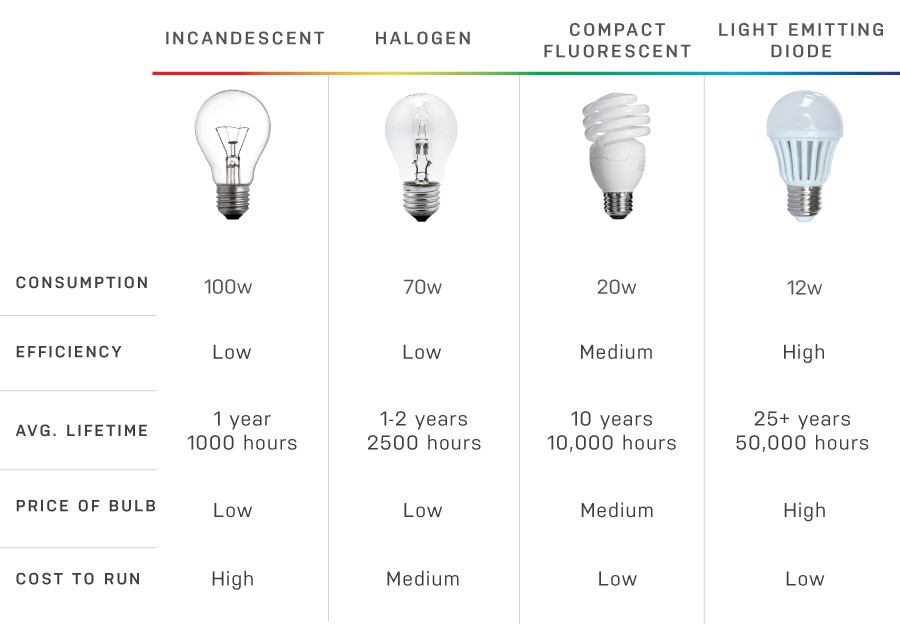
source: https://ledstuff.co.nz/led-lighting
LED lighting is not only more efficient but also produces a warmer glow that’s similar to incandescents, making them an excellent choice for apartments or any other space where energy efficiency is essential.
- Check your windows and doors. A well-insulated home ensures energy isn’t leaking out and driving up utility bills.
Check the seals around windows and doors for any gaps or cracks, which can allow warm air to escape in winter and cool air to bleed out in summer. If you find any significant issues, consider replacing weatherstripping or caulking them closed to reduce drafts.
Explore Renewable Energy Sources
Renewable energy sources are becoming increasingly popular as an alternative to traditional fossil fuel-based energy. Solar, wind, and hydropower are some of the most common types of renewable energy available today.
Not only do these alternatives produce clean electricity without releasing harmful emissions into the atmosphere, but they can also help you reduce your monthly utility bills by offsetting power from the grid.
While many people think that installing solar or wind turbines is out of reach due to cost or space constraints in apartments, there are a variety of other ways that apartment dwellers can take advantage of renewable resources:
- Investing in green energy through utility companies. Many utilities now offer green energy tariffs that charge the same rate for electricity but use renewable resources instead of traditional sources to generate power.
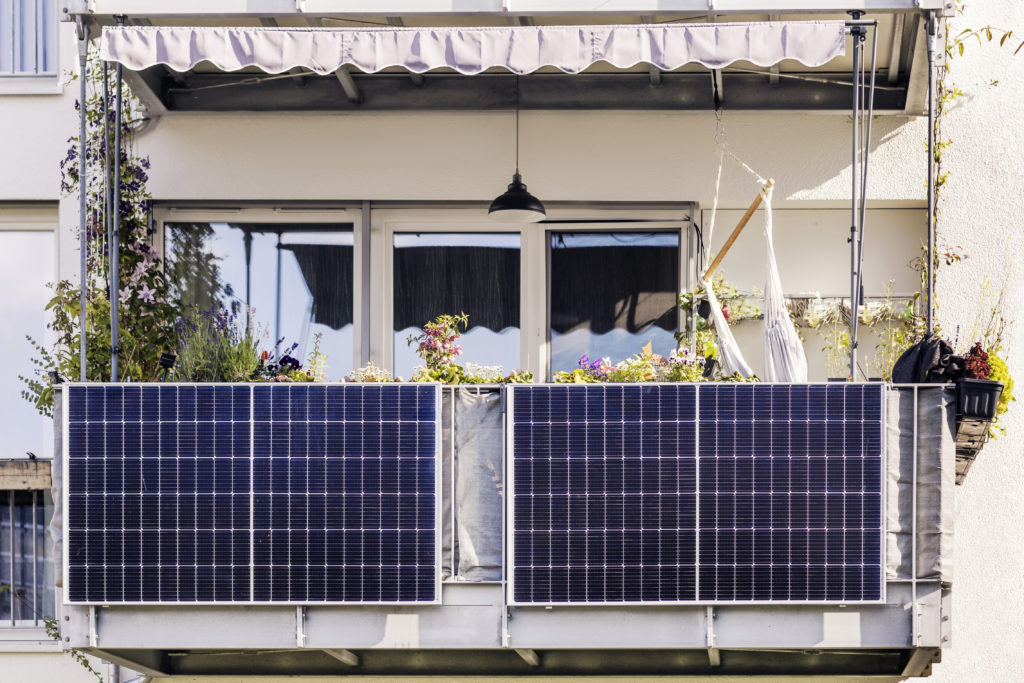
- Installing solar panels on balconies, windows, and rooftops. While not all apartments are suitable for solar panel installation, some have enough space to make it possible.
If you’re lucky enough to have access to a balcony or rooftop with plenty of sunlight, consider investing in one or more arrays of solar panels so you can produce your own clean electricity without relying entirely on the grid.
- Purchasing wind turbines specifically designed for apartments. A variety of smaller-scale wind turbines are available that are ideal for small spaces such as apartments and condos, making them an excellent choice if you don’t have access to a roof or balcony large enough for a solar panel array.
- Joining a local community renewable energy program. Communities across the United States have established programs that allow residents to purchase renewable energy from local sources at a discounted rate.
Talk to Your Landlord or Building Manager
If you’re an apartment dweller, your ability to make significant energy-saving changes may be limited by the building’s overall infrastructure and energy management systems.
Fortunately, this doesn’t mean that you can’t participate in making a difference; often, apartments are managed and maintained by landlords or property managers who are open to discussing ways to reduce energy usage.
For example, they may be willing to replace outdated lighting fixtures with energy-efficient models or explore the feasibility of installing renewable energy sources. By voicing your concerns and suggestions, you can help move towards a more sustainable future while also enjoying lower utility bills.
Why Should You Care?
Saving energy is essential for reducing costs and helping to protect our environment. By adopting alternatives such as smart home technology, energy-efficient appliances, and renewable sources of power, you can have a direct impact on the world around you while also saving money in the process.
It’s up to all of us to take action and make sure that we’re doing what we can to reduce our carbon footprint. So start exploring some of these alternatives today and let your efforts speak for themselves!
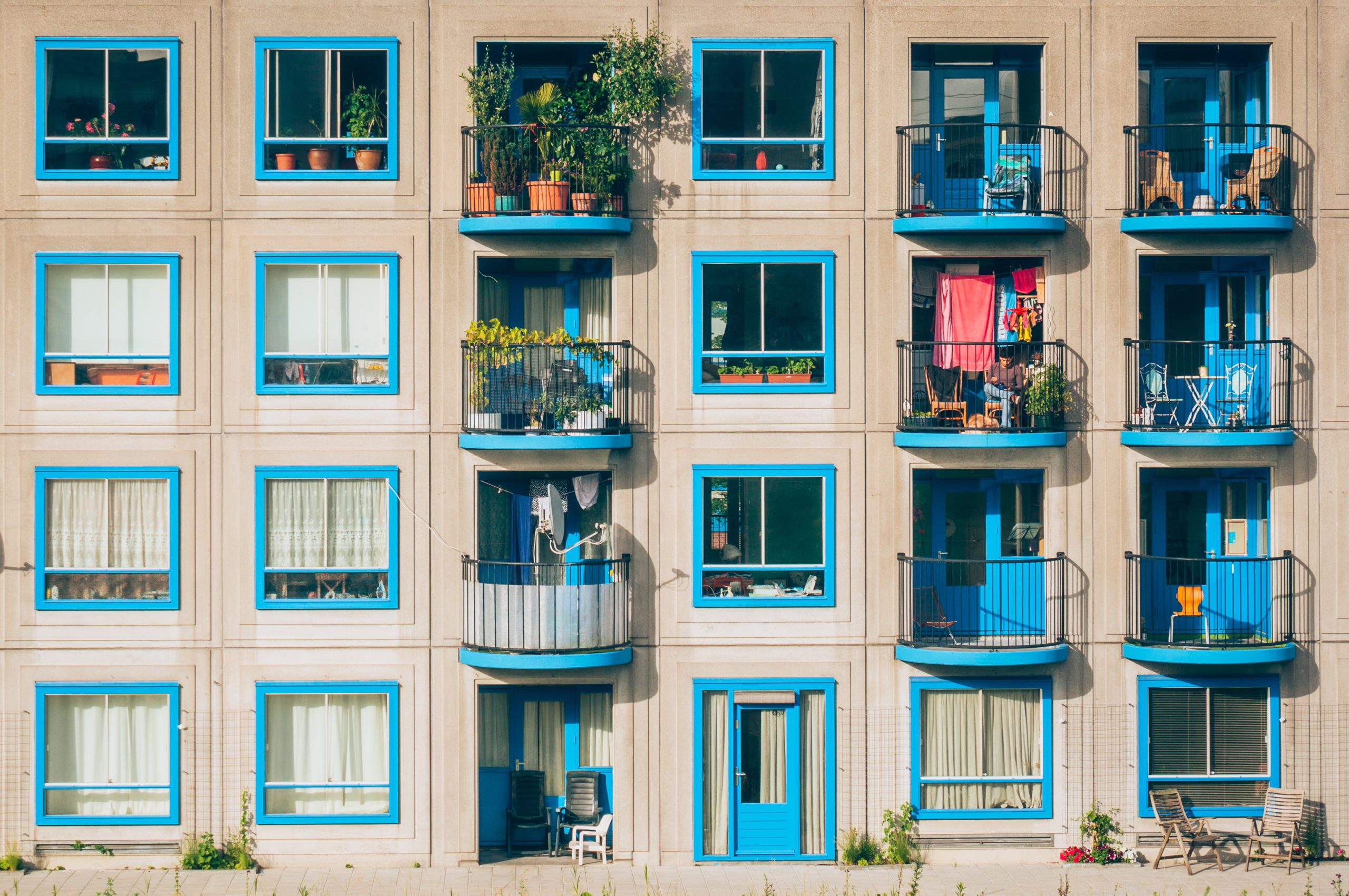



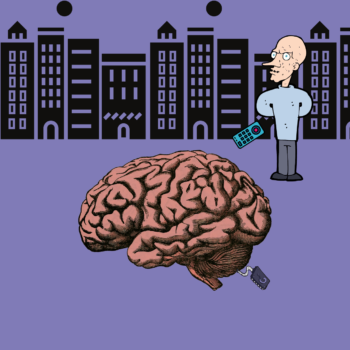


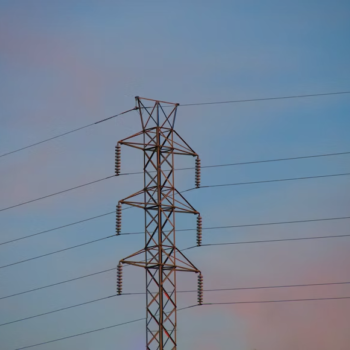





No Comments